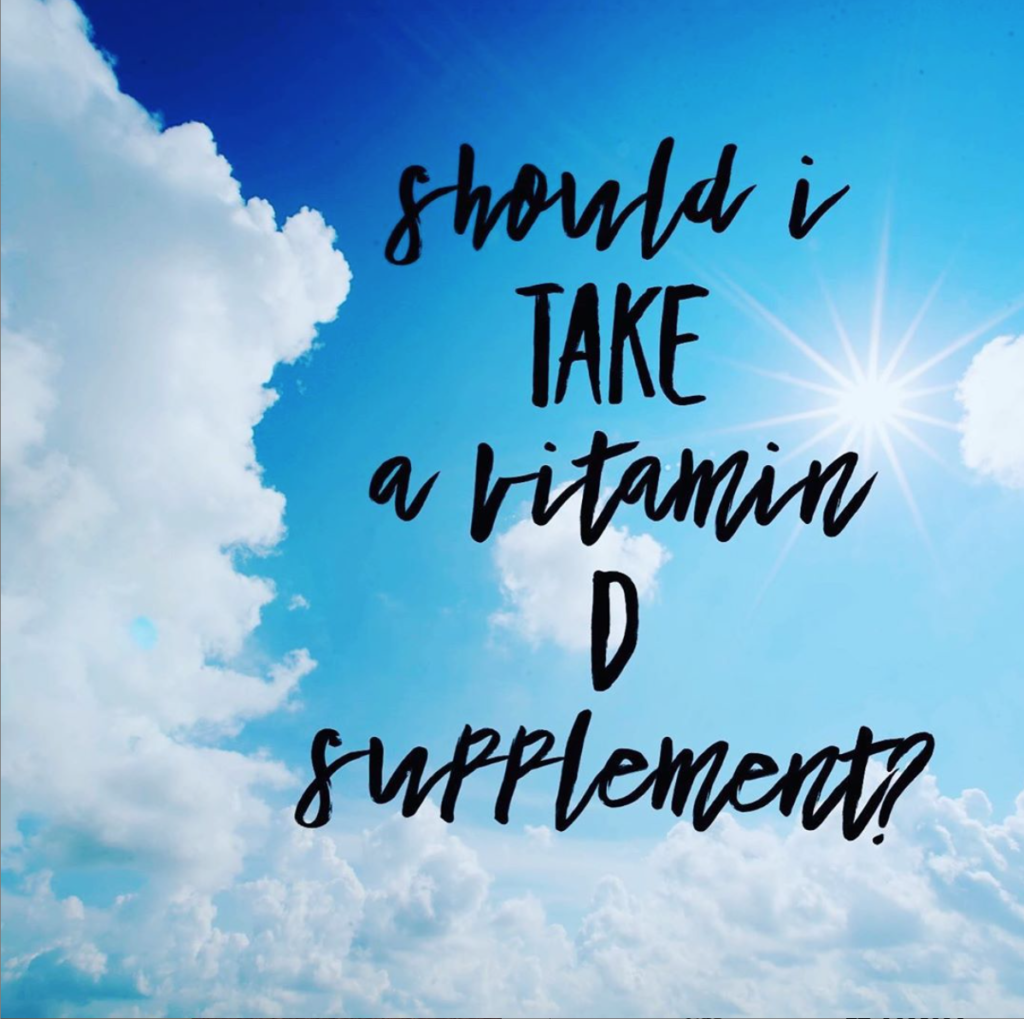Vitamin D is a fat soluble vitamin that we make in our skin when it is exposed to sunshine. Sounds simple right? So why then do we have a growing level of people with vitamin D deficiency? Vitamin D deficiency is said to affect around 50% of the worldwide population.

Why is is important:
It helps us regulate calcium and phosphate levels in the body so it is therefore important for bone health. A deficiency can cause weakened bones leading to osteoporosis and ostepenia or rickets in children.
It is also involved in regulating the number of new cells that grow and the types of cells.
There is some evidence to show it can reduce inflammation in the body.
There is also research linking vitamin D to all total mortality and it could be linked to several chronic diseases including heart disease and cancers.
How do I know I am lacking it?
You can ask your GP for a blood test if you think you are deficient. Symptoms include fatigue, muscle weakness, poor wound healing and bone pain.
A deficiency is <0.8 IU of 25 (OH)D and an insufficiency is 21-29 mg/mL.
However the basic message is that in the UK, we ALL need to be taking a supplement, at least just over the winter months. If you are someone who does not go outside for long with uncovered skin and without sunscreen then taking it all year round is a good plan.
But can’t my body make it?
Your body can cleverly make vitamin D but only when your bare skin is exposed to the right type of sun rays, with no sunscreen on.
Now in the UK we just don’t get enough of the right type of sunshine through the whole year. The closer to the equator that you live the easier it is to make your vitamin D! A top tip is when your shadow is shorter than you then you are able to make vitamin D. So this is often the midday sun when many people will be inside at work, or have sunscreen on to prevent burning.
The more skin you have exposed the more vitamin D you can make. Paler skin will make it faster (and burn faster so beware, usually no more than 15 minutes in the sun is recommended without sunscreen). the melanin in darker skin slows down vitamin D production.
What about foods?
These foods are great as an additional vitamin D source but it is hard to meet all your needs from food only. So see these as a top up only.
Oily fish (salmon, mackerel, sardines) – wild fish contains higher levels.
Free range meat
Liver
Free range egg yolks
Mushrooms left in the sun
Fortified foods (margarine, plant milks, breakfast cereals)
How much should I take?
A review by SACN in 2016 led to the recommendations:
- All adults should take a vitamin D supplement of 10 mcg/day.
- Children 0-1 are advised to take 8.5-10mcg.
- Children over 1 yrs to take 10mcg/day.
You can buy supplements or a spray over the counter. Look for D3 and not D2.
There are some supplements that contain mega doses of vitamin D. These can be used when people have very low levels, chat to your GP before starting to take one of these as vitamin D is fat soluble and so levels can build up in the body.
References:
https://www.ncbi.nlm.nih.gov/pmc/articles/PMC3356951/
https://www.vitamindcouncil.org/about-vitamin-d/how-do-i-get-the-vitamin-d-my-body-needs/#.Xbalpi2cZQI